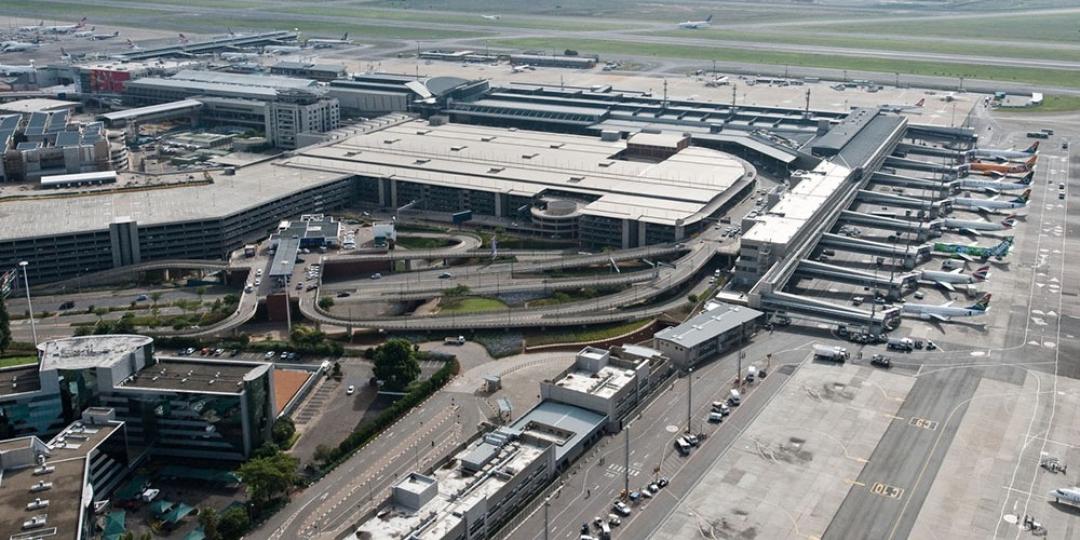Airports Company South Africa (Acsa) has told Tourism Update that the baggage sortation systems at its airports are operational and serviceable.
This comes after a FlySafair passenger contacted mainstream media outlets to slam the airline for damaging her designer luggage and “evading responsibility”.
The airline responded by saying that luggage is screened and sorted by parties that airlines do not employ and do not manage directly. In this instance, the luggage was processed on automated baggage sortation systems owned, managed, and maintained by other parties, such as Acsa.
Furthermore, Acsa said in a press release earlier this month that it had experienced serious baggage sortation incidents over the festive season period.
There was a technical issue where one of the five baggage systems in the domestic terminal at OR Tambo broke down due to an incident that affected an electromechanical sensor.
Out of a total of 77 569 bags processed at the airport on December 22 and 23, 4 500 bags were short shipped. This resulted in delayed flights as most domestic airlines waited for travellers’ bags to be loaded. Acsa mobilised its staff, including the senior management team, to assist and the incident was resolved.
Cape Town International Airport experienced two baggage sortation system incidents in the first week of January.
One was caused by a protruding object on a traveller’s bag which damaged a conveyor belt. The second incident was due to a premature belt failure.
These two incidents resulted in 67 and 41 bags respectively being short shipped. However, these incidents were resolved on the day and most of the bags were reconciled with their owners on later flights on the same day.
Acsa took further remedial action to improve enforcement of compliant bags at check-in and is now completing baggage sortation system projects for Cape Town, King Shaka and OR Tambo, which commenced in 2023 and will improve system reliability and redundancy.
Regarding Acsa’s luggage scanning system, it reported that X-ray machine availability is at 98%.
“Acsa focuses on maintaining luggage sortation systems but does not handle passenger bags directly. Ground handlers and airlines manage and handle passenger bags. In terms of ensuring the safe and secure handling of passengers’ luggage, Acsa’s entire airport network is supported by the strategic deployment of security cameras stationed within the baggage sortation system,” Acsa said.
The airports company added that OR Tambo International Airport alone had just over 3 400 security cameras operating across the airport. “These measures and more are there to facilitate the secure and safe handling of passengers’ luggage.”
Acsa continued: “Airlines are directly responsible for any damage to passengers' luggage at Acsa airports. Ground handlers, as third-party service providers, are involved in claim processing, with thorough investigations conducted by both Acsa and airline representatives.
“It is important to note that airlines are responsible for items if/once they have accepted them for transportation at the check-in counter by an airline appointed check-in agent. Passengers should refer to their contract with the airline for compensation regarding damaged luggage.”
How it works from an airline’s perspective
International airline Air France-KLM has told Tourism Update that, while it does everything it can to ensure that passengers are united with their baggage at their final destination as intended, there are areas out of its control such as third-party handlers.
“If a passenger arrives at their destination and the baggage has been damaged, the incident must be reported at the arriving station. A file will be opened and if we can repair the bag this will be done, if not, the bag will be replaced,” the airline said.
Jonathan Ayache, CEO of domestic airline Lift, said that, as with all airlines, when it came to baggage, there were a number of stakeholders involved in getting a passenger’s bag from the point of drop-off to their destination. These include the airline, the ground-handling companies and Acsa.
“Our baggage policy begins at check-in where a passenger’s baggage is assessed for any existing damages. Depending on the state of the bag, we might encourage the traveller to wrap the bag to prevent further damage in transit. This also applies to non-standard items such as bicycles, prams, musical instruments, etc.
“Should we receive a report of damaged baggage from one of our travellers, we start a process of investigation and should there be enough evidence the traveller will be compensated accordingly,” Ayache said.
He pointed out that airlines base the amount of compensation on standard Iata recommendations for pay-outs regarding damaged suitcases and their contents, regardless of the brand of the damaged piece of baggage.
“We recommend travellers purchase baggage and or travel insurance to ensure their valuables are adequately covered during transit. We also offer baggage insurance during our booking process which covers travellers’ bags against damage, loss and theft,” Ayache said.























